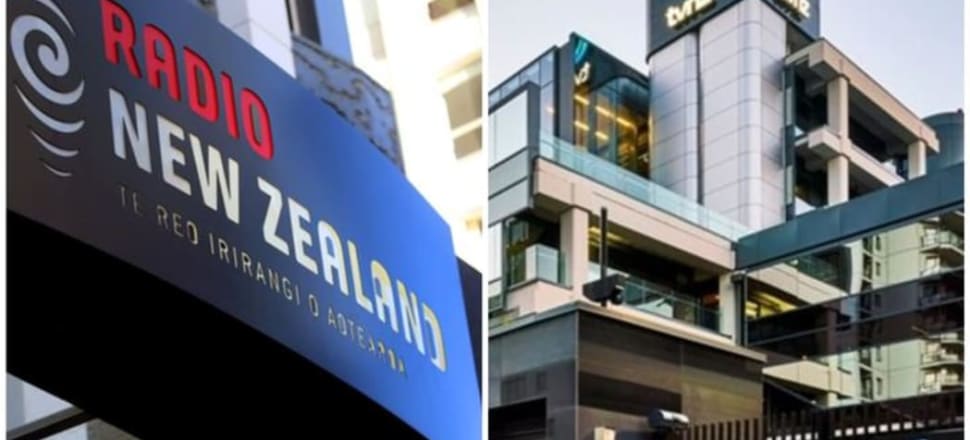
Dr Peter Davis looks at whether the TVNZ/RNZ merger will rebalance our media eco-system - or whether it's just an ideological project
Comment: The Government’s proposal to merge our two publicly-owned media entities, Television New Zealand and Radio New Zealand, has prompted considerable debate. The reasoning behind the proposal is not well understood, and opinion polling suggests the public is sceptical of the plan. So, is this a flawed initiative?
There is an air of unreality about the debate. While some may decry the proposal as an ideological project or a “marriage made in hell”, there are some very real issues in the media that we need to address, and the current proposal could be seen as a first step in the right direction.
READ MORE: * Jackson's big sell to TVNZ/RNZ * Media merger a 'chilling prospect'
Firstly, the business model for news is collapsing. As Google, Facebook and Amazon have increasingly come to control a predominance of digital advertising revenue over the past 15 years, a third of newspapers have closed in the United States and nearly two-thirds of newspaper jobs have been lost. In New Zealand the share of all advertising going to newspapers has declined from 40.7 percent to 10.4 percent in the past 20 years.
Secondly, the internet is broken. What started as a public commons is now carved up among social media platforms that house, monetise, appropriate, and shape a significant portion of public debate. These are controlled and managed by overseas interests with their own commercial objectives.
Therefore, while the focus naturally has been on the merger itself – could it work, is it too expensive, is there a danger of political interference – a wider question is what this proposal implies about the broader media eco-system in New Zealand. A number of things are clear from the background Cabinet papers:
* our media eco-system is small, fragile, even precarious, particularly with the rapid decline in traditional sources of advertising revenue;
* with intensifying competition there is a real danger of “market failure”, in the sense that the standard commercial model no longer provides the space for the kind of quality journalism that can show balance and depth in informing the public in our pluralistic democracy;
* with the entry of global social media companies and streaming giants, New Zealand struggles to sustain quality local media; and
* there is blurring between the commercial models of social and mainstream media such that algorithms calibrate media offerings to distinct consumer audiences, with a potential for segmentation and polarisation as we have documented at The Helen Clark Foundation.
It is also as well to remember that: TV3 has been through two receiverships since 1989 and has since been passed on via MediaWorks to Discovery; Sky TV is a Pay-TV monopoly and was once owned by Rupert Murdoch; there was a proposal to merge our two major print-based media companies (NZME and Stuff); Stuff was sold by its Australian owner for $1; and the government had to pump $55 million dollars into the media sector during the pandemic to ensure survival. And advertising revenues, the life-blood of the commercial media, are increasingly dominated by the large social media companies which pay very little – if any - tax.
It is in this turbulent environment that we need to value the potential anchor role that a respected public broadcaster can play in our fragile media eco-system. It could provide a free-to-air-and-online “commons” that is inclusive and that can nurture searching and even-handed journalism alongside opinion, controversy, and cultural exploration. And there is also the role of public media as a strategic asset in anchoring our media eco-system at a time when almost any commercial element could be bought by offshore interests. Furthermore, we need to protect New Zealand’s “cultural sovereignty” against an onslaught of overseas streaming giants whose sheer technical and cultural virtuosity threatens to overwhelm our puny resources and, as the recent documentary on Whakaari by Netflix shows, are sometimes even telling our own stories faster than we can, although not necessarily with the required accuracy.
Some argue this venture will be too expensive, and yet, per capita, public funding of the proposed new entity will still be less than the ABC and almost every other developed nation we choose to compare ourselves with. And to argue about the expense of this may be missing the point. Digital advertising has almost quadrupled to close to $1.5 billion per year taking much needed revenue from private media companies. It could be argued that the entire media eco-system is in a financially precarious state, not just the proposed new public entity. That’s the underlying issue we need to tackle.
We might find that a TV-enhanced and suitably modified multi-platform mix of what RNZ has developed works well across the entire merged organisation and could help New Zealand to establish an inclusive commons where we can tell our own stories, conduct a national conversation, and hold a mirror up to our increasingly diverse and vibrant society, leaving plenty of room for the important domestic private media sector as well as for the overseas streaming, broadcast and social media giants that otherwise threaten to overwhelm us.







